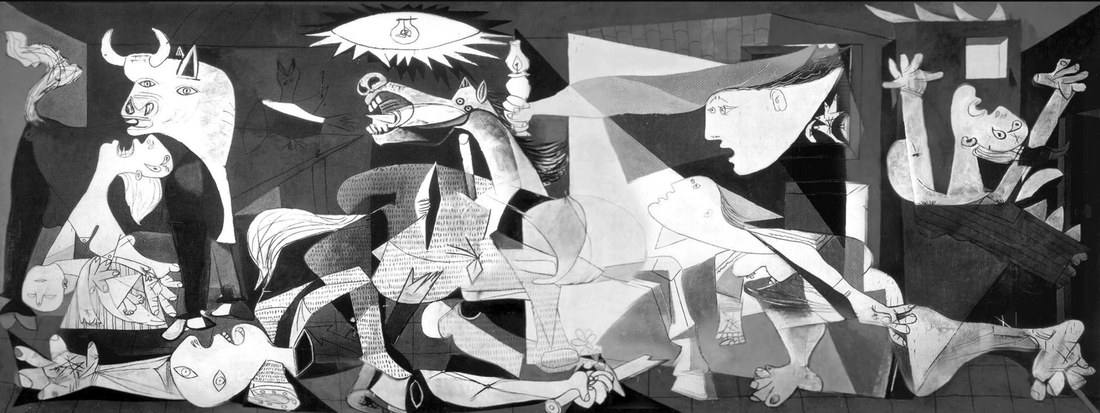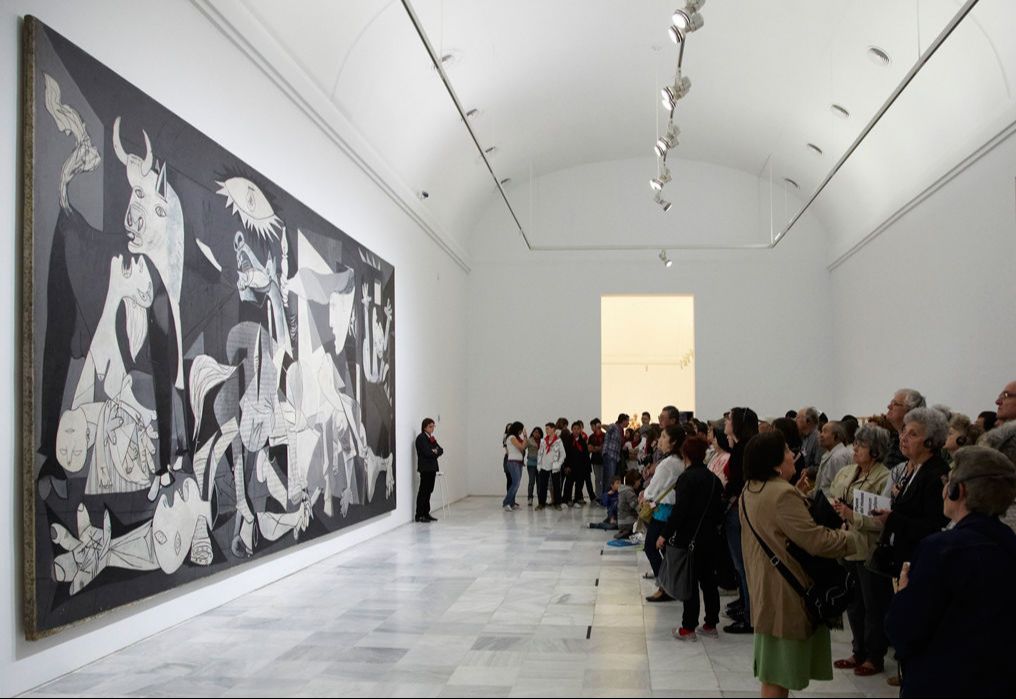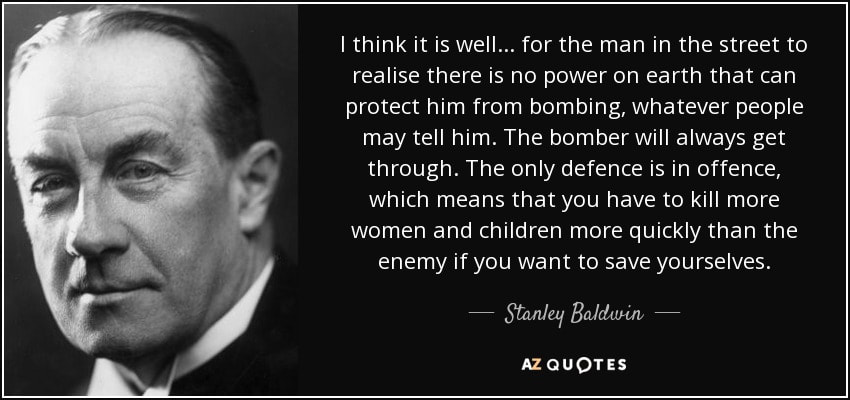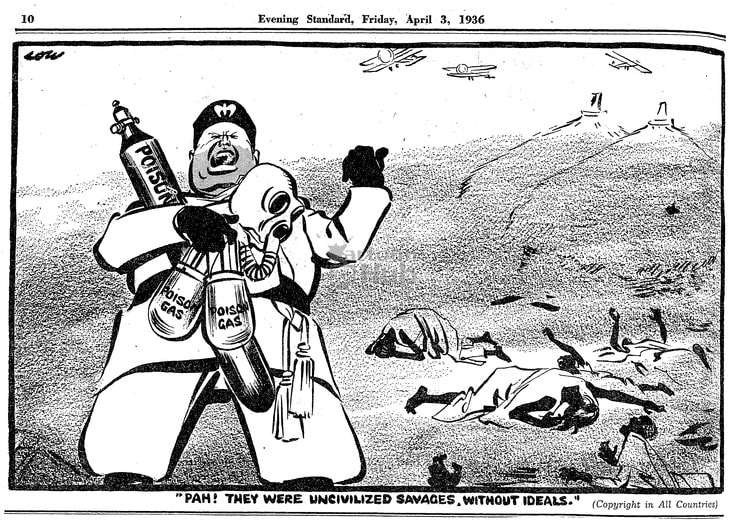Lesson 9 - Third Generational Warfare - War in the interwar years
Big questions and some more answers
Last lesson we looked at the First World War, a war that not only marked a turning point (watershed!) in the history of warfare, but as you will see when you study the Matu, it also marked a turning point in the history of the world in general. The Belle Époque optimism that human civilisation was making continuing progress was shattered in the trenches of Verdun and the Somme and forever remembered on the 11th of November and in village war memorials built all over Europe. The First World War was the logical conclusion of the 'second generation' warfare but at the very end with the development of tanks and aircraft we also saw a glimpse of the 'third generation' war to come. The First World War was also the first industrial 'total' war. The unprecedented geographical scale of the conflict, the countless dead on the battlefields, but above all, the engagement of the population in the struggle on the 'home front' meant that the traditional distinction between soldier and civilian was becoming blurred. Civilians who were casualties of war were still 'innocent victims', but only just. By the end of the war, and in the 'inter-war' years that followed, civilian casualties gradually became 'acceptable' or 'inevitable' victims of modern war. Long before the Second World War began in Europe in September 1939 civilians would become the intended targets of military campaigns. This is what this lesson will examine.
Last lesson we looked at the First World War, a war that not only marked a turning point (watershed!) in the history of warfare, but as you will see when you study the Matu, it also marked a turning point in the history of the world in general. The Belle Époque optimism that human civilisation was making continuing progress was shattered in the trenches of Verdun and the Somme and forever remembered on the 11th of November and in village war memorials built all over Europe. The First World War was the logical conclusion of the 'second generation' warfare but at the very end with the development of tanks and aircraft we also saw a glimpse of the 'third generation' war to come. The First World War was also the first industrial 'total' war. The unprecedented geographical scale of the conflict, the countless dead on the battlefields, but above all, the engagement of the population in the struggle on the 'home front' meant that the traditional distinction between soldier and civilian was becoming blurred. Civilians who were casualties of war were still 'innocent victims', but only just. By the end of the war, and in the 'inter-war' years that followed, civilian casualties gradually became 'acceptable' or 'inevitable' victims of modern war. Long before the Second World War began in Europe in September 1939 civilians would become the intended targets of military campaigns. This is what this lesson will examine.
Heritage Object - Pablo Picasso, Guernica 1937, Museo Reina Sofía Madrid.
A bit of background
The Wall Street Crash (Matu 9) and Great Depression of 1930s brought to power new governments that were nationalistic and militaristic. They are often described as ‘fascist’. These governments were anti-democratic and abandoned the post-war attempts to maintain peace via the League of Nations. (Matu 10) Mussolini's Italy, Hitler’s Germany and Imperial Japan were all engaged in conflicts in the 'inter-war' period which gave the world a taste of what war was to become. Perhaps one of the most important characteristics of these regimes was their belief in their racial superiority. Just as with the medieval crusades - remember Pope Urban II called the muslims 'foul creatures' - barbaric behaviour can then easily be justified if the 'other' that you fight is somehow dehumanised. (Dehumanisation is stage 4 in the 10 stages of genocide)
The Wall Street Crash (Matu 9) and Great Depression of 1930s brought to power new governments that were nationalistic and militaristic. They are often described as ‘fascist’. These governments were anti-democratic and abandoned the post-war attempts to maintain peace via the League of Nations. (Matu 10) Mussolini's Italy, Hitler’s Germany and Imperial Japan were all engaged in conflicts in the 'inter-war' period which gave the world a taste of what war was to become. Perhaps one of the most important characteristics of these regimes was their belief in their racial superiority. Just as with the medieval crusades - remember Pope Urban II called the muslims 'foul creatures' - barbaric behaviour can then easily be justified if the 'other' that you fight is somehow dehumanised. (Dehumanisation is stage 4 in the 10 stages of genocide)
|
Third Generational War - 'The bomber will always get through'
The concept of blitzkrieg (lightening war) is central to the idea of third generation war and stands in stark contrast the trench war of attrition and defence that characterised the First World War. Through the use of tanks, mechanised infantry, and close air support, an army would be able to quickly break through defences. Significant technological developments in aircraft design and manufacture meant that by the 1930s it became possible for aircraft to fly hundreds of kilometres before dropping high explosives on a target below. |
In 1932, the British politician Stanley Baldwin (Prime Minister 1923-4, 1924-29 and 1935-37) made a famous speech entitled 'A Fear for the Future' in which he explained how in a future war bomber aircraft will be able to destroy whole cities and there was little that could be done to stop it. He famously said 'the bomber always gets through'. His chilling conclusion was that future wars would require one to "kill more women and children more quickly than the enemy if you want to save yourselves."
|
The Second Italo-Abyssinian War October 1935
Italian fascist dictator Benito Mussolini had long held a desire for a new Italian Empire. Ethiopia was a prime candidate of this expansionist goal as it was considered to be militarily weak, but rich in resources. Despite having signed the 1925 Geneva Protocol, the Italian armed forces used grenades and bombs loaded with mustard gas, which were dropped from airplanes and also sprayed directly from above like an insecticide onto enemy combatants and villages. They also set up forced labour camps, installed public gallows, killed hostages, and mutilated the corpses of their enemies. Italian commander Graziani ordered the elimination of captured guerrillas by throwing them out of airplanes in mid-flight. |
The bombing of Guernica during the Spanish Civil War – 26th April 1937
After a failed military uprising led by General Franco against the democratically elected Spanish government in July 1936, Spain descended into civil war. Franco's forces were supported by the fascist dictatorships in Europe.
After a failed military uprising led by General Franco against the democratically elected Spanish government in July 1936, Spain descended into civil war. Franco's forces were supported by the fascist dictatorships in Europe.
|
|
The bombing of Guernica was an aerial attack by planes of the German Luftwaffe ‘Condor Legion’ and the Italian Fascist Aviazione Legionaria on the Basque town of Guernica. The attacks destroyed the majority of Guernica, a centre of great cultural significance to the Basque people but of no military significance. Three quarters of the city's buildings were reported completely destroyed, and most others sustained damage. The Basque government figures released at the time put the largely civilian casualty toll at a minimum of 1,654 dead and 889 wounded. The Times journalist George Steer arrived in Guernica soon after the bombing and filed a report that alerted the world the the changed nature of warfare and inspired Picasso to produce his painting. (See left)
|
Franco went on to win the civil war and ruled Spain as a military dictator until his death in November 1975.
The massacre of Nanjing – December 1937
It might be argued that the Second World War actually began with the invasion of China by Japan in July 1937. The massacre of Nanjing, commonly known as the Rape of Nanking, was an infamous war crime committed by the Japanese military in Nanjing after it fell to the Imperial Japanese Army on December 13, 1937. The event is still little known in the West and has been described as the 'The Forgotten Holocaust of World War Two'. The total number of civilians and prisoners of war murdered in Nanking during the first six weeks of the Japanese occupation was over 200,000. The International Military Tribunal for the Far East stated that 20,000 women were raped. Rapes were often committed in public during the day, sometimes in front of family members that were tied up and forced to watch. The women were then killed immediately after the rape, often through mutilation. There are even stories of Japanese troops forcing families to commit acts of incest. Thousands were led away and mass-executed in the ‘Ten-Thousand-Corpse Ditch’, a trench measuring about 300m long and 5m wide. Since records were not kept, estimates regarding the number of victims buried in the ditch range from 4,000 to 20,000.
It might be argued that the Second World War actually began with the invasion of China by Japan in July 1937. The massacre of Nanjing, commonly known as the Rape of Nanking, was an infamous war crime committed by the Japanese military in Nanjing after it fell to the Imperial Japanese Army on December 13, 1937. The event is still little known in the West and has been described as the 'The Forgotten Holocaust of World War Two'. The total number of civilians and prisoners of war murdered in Nanking during the first six weeks of the Japanese occupation was over 200,000. The International Military Tribunal for the Far East stated that 20,000 women were raped. Rapes were often committed in public during the day, sometimes in front of family members that were tied up and forced to watch. The women were then killed immediately after the rape, often through mutilation. There are even stories of Japanese troops forcing families to commit acts of incest. Thousands were led away and mass-executed in the ‘Ten-Thousand-Corpse Ditch’, a trench measuring about 300m long and 5m wide. Since records were not kept, estimates regarding the number of victims buried in the ditch range from 4,000 to 20,000.
Conclusion - World War Two
During the Second World War - the deadliest war in human history - the killing of an enemy considered to be racially inferior led to an estimated total of 70–85 million deaths, the majority of whom were civilian. This number includes the six million killed in the Holocaust. It is very difficult to visualise these numbers. As Stalin is said to remarked 'The death of one man is a tragedy. The death of millions is a statistic.' This graphical film does help to make sense of it.
During the Second World War - the deadliest war in human history - the killing of an enemy considered to be racially inferior led to an estimated total of 70–85 million deaths, the majority of whom were civilian. This number includes the six million killed in the Holocaust. It is very difficult to visualise these numbers. As Stalin is said to remarked 'The death of one man is a tragedy. The death of millions is a statistic.' This graphical film does help to make sense of it.
Activities
- Explain what is meant by 'third generation' warfare and Stanley Baldwin's phrase that 'the bomber always gets through'.
- 'The morality and ethics of warfare changed in the 1930s'. Discuss this statement with reference to the war in Abyssinia, the bombing of Guernica and the massacre of Nanjing.




